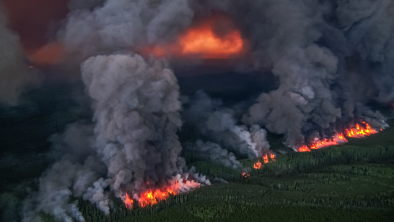Is clean water a right for only some Islanders?
By Torrance Coste
Times Colonist
June 4, 2015
On Vancouver Island, there are two sets of rights when it comes to clean, safe drinking water. Some of us get water from sources controlled by our municipalities and protected in perpetuity. Others drink from watersheds that are privately owned and open to all manner of industrial exploitation.
This isn’t right.
A few weeks ago, I went to the Save Shawnigan Lake Water rally at the B.C. legislature. The rally was organized by the Shawnigan Residents Association and was the latest step in a multi-year fight against South Island Aggregates, a gravel-mining company that is now dumping contaminated industrial soil into its exhausted pits. The site is next to a creek that drains into Shawnigan Lake, the community water source.
Shawnigan residents are extremely concerned about contamination and have opposed SIA on the streets and in an appeal court. They’ve garnered more than 15,000 signatures on a petition urging the Environment Ministry to revoke SIA’s permit.
Last summer, I spoke at a rally in Port Alberni, organized by residents and local organizations working to protect McLaughlin Ridge, the site of the last remaining old-growth forest in the community’s watershed. McLaughlin Ridge is a steep slope above Port Alberni’s water intake, and clearcut logging in this type of landscape has serious implications for erosion and runoff rates, which in turn affect water quality.
The land in question is owned by Island Timberlands. Despite calls from the municipal government, First Nations leaders, environmental organizations and the local MLA, Island Timberlands has refused to stop clearcutting the old growth.
For years, the Wilderness Committee has worked with groups and residents in the Fanny Bay area to stop the proposed Raven Coal Mine. The idea of a mine just up the hill that would use almost half a million litres of water per day is a total non-starter in the community. Due to widespread opposition across Vancouver Island, the mine proponent withdrew its application this year but has vowed to return.
Shawnigan Lake, Port Alberni and Fanny Bay have demonstrated the power and importance of grassroots community organizing. As a young activist, I’ve drawn inspiration from the commitment and resilience of the folks fighting these campaigns. In every instance they’ve been outspent by the corporate landowners they’re working against. And in every instance the Environment Ministry has been nowhere to be found. These communities are making heroic stands to defend their right to safe drinking water.
But here’s the thing — they shouldn’t have to.
In Greater Victoria, where I live, our drinking-water source has been owned by the Capital Regional District or its member municipalities for more than a century. Watershed access is fully restricted — you can’t even walk your dog up to Sooke Lake.
But all over the rest of the Island, people are putting their lives on hold to plead for what should be a guaranteed human right. As Calvin Cook, the head of the SRA, put it at the Shawnigan water rally: “We’ve had to fight our own Ministry of Environment for clean drinking water.”
We already know that climate change will increase the frequency and intensity of droughts and floods, alter snowpack levels and cause other impacts to water quantity. Jurisdictions that protect their watersheds as healthy, intact systems will have more stability in a changing climate. In privately owned watersheds, we see industrial development that undermines water quality. In publicly owned watersheds, we don’t.
The provincial government simply has to address this. Port Alberni Mayor Mike Ruttan and many others have advocated for full municipal control of watersheds, and the provincial government can help make this happen.
Surely the right to safe, clean water isn’t only for those of us in municipalities with large enough tax bases to purchase our watersheds.
In our work to protect the environment in places across Canada, the issue of water comes up again and again. It’s a recurring theme in rural northern communities where fossil fuels and other natural resources are exploited on an industrial scale. Environmental racism still flourishes in this country, and First Nations communities bear an unfair share of the environmental impacts associated with industrial projects.
It doesn’t reflect well on us that protected drinking-water sources still aren’t guaranteed for everyone. We all have a responsibility to demand better, and our provincial governments have a responsibility to deliver.
Photo: Save Shawnigan Lake Water Rally in Victoria, May 2015 (Torrance Coste)


